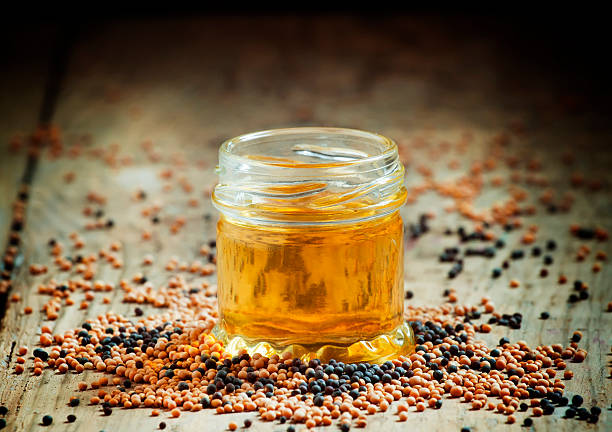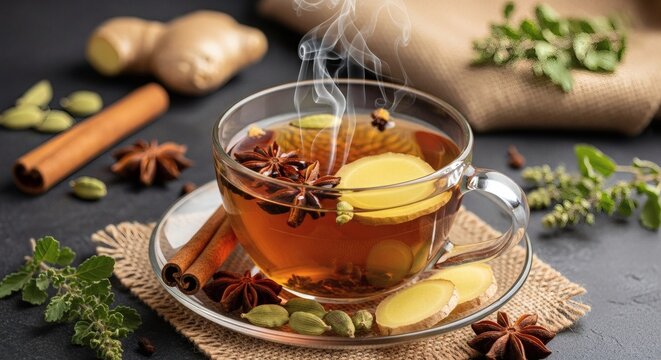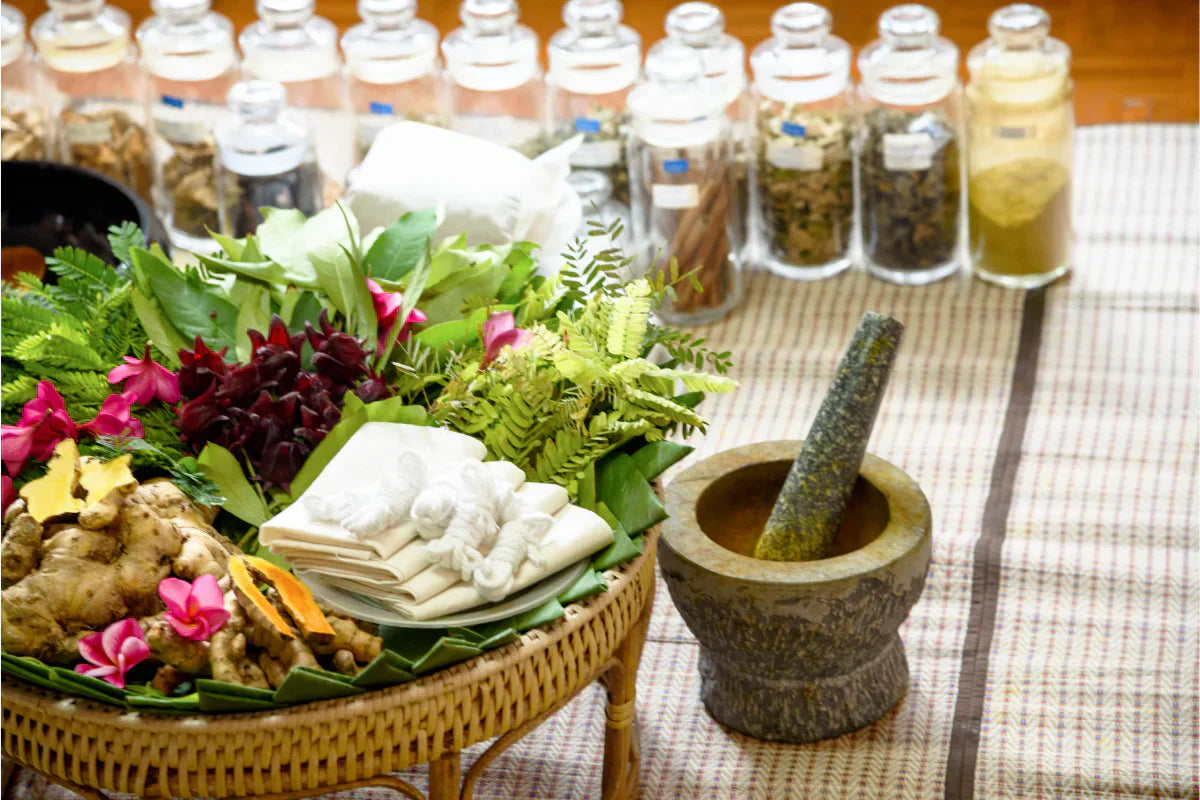Ayurveda for Radiance: Top 10 Skin-Brightening Herbs
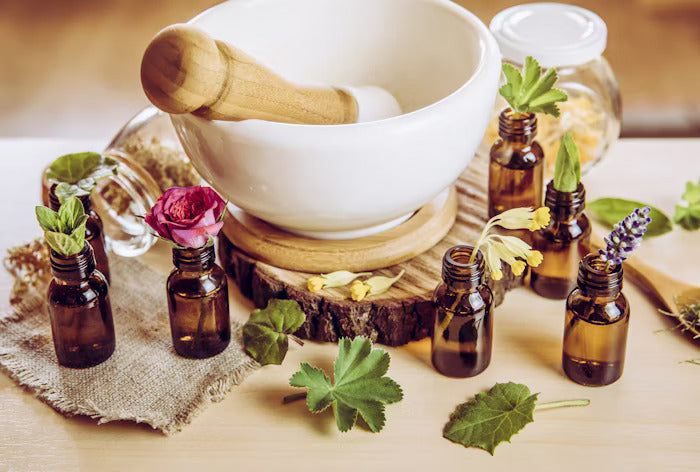
Understanding Ayurveda and Skin Health
Imagine a world where your skin radiates health and vitality, reflecting the harmony within your body. Ayurveda, an ancient holistic healing system from India, offers profound insights into achieving this balance. Central to Ayurveda is the concept of 'doshas, ' the energies that govern our physiological and psychological processes. Each person has a unique dosha combination, which influences not only our health but also our skin's appearance.
In Ayurveda, skin health is deeply intertwined with the balance of these doshas. A harmonious state leads to vibrant, glowing skin, while imbalances can manifest as various skin issues. The term 'Varna' is pivotal in this context; it refers not merely to skin color but to the overall health and vitality of your skin. Varna reflects the balance of Agni (digestive fire), doshas, and dhatus (tissues) within the body.
To achieve radiant skin, Ayurveda emphasizes the importance of lifestyle choices, including diet, stress management, and skincare routines. For instance, consuming fresh, nourishing foods supports Agni, promoting better digestion and, consequently, healthier skin. Additionally, practices like panchakarma (detoxification) and regular self-care rituals can help restore balance and enhance your skin's natural glow. By understanding Ayurveda’s holistic approach, you can embark on a path toward healthier, brighter skin that aligns with your inner harmony.
Quick TL;DR — Ayurvedic Herbs for Brighter Skin
- Ayurveda & Skin: Healthy skin reflects inner balance of doshas, agni (digestion), and lifestyle.
- Powerful Herbs: Turmeric, Sandalwood, Neem, Amla, Saffron, Rose, Manjistha & more promote glow, fight acne, reduce pigmentation, and delay aging.
- Kumkumadi Oil: A classical blend with saffron, sandalwood & manjistha — called the “miracle oil” for radiance.
- DIY Packs: Easy home remedies with turmeric + yogurt, sandalwood + rose water, neem + honey, etc. boost skin health naturally.
- Daily Routine: Gentle herbal cleansers, rose water toners, nourishing oils, mindful diet & hydration keep skin vibrant.
- Safety First: Always patch test, consult a practitioner if needed, and choose high-quality organic herbs.
The Role of Ayurvedic Herbs in Skin Brightening
Ayurvedic herbs are packed with unique, time-tested properties that contribute to a luminous complexion and help heal skin problems. The gentle and natural remedies are suitable for all skin types, with minimal to no side effects. Today, the Western world is waking up to the long-lasting, deep-rooted healing nature of such herbs.
Ayurvedic herbs often work synergistically, addressing external appearances while correcting internal imbalances. The herbs act as supports to your skin's natural processes, allowing it to thrive naturally. This deep-seated, holistic perspective promotes the connection between skin and overall physical health, fostering skin radiance along with general well-being.
10 Ayurvedic Herbs for Naturally Brighter Skin
1. Manjistha (Rubia cordifolia)
- Ayurvedic Qualities: Tikta (bitter), Madhur (sweet), Kashaya (astringent); Ushna Virya (warming); Pitta-Kapha shamak.
- Benefits: Powerful Raktashodhak (blood purifier) and Varnya herb. Clears pigmentation, acne scars, and uneven skin tone.
- Modern Insight: Contains glucosides and resins; studies show tyrosinase inhibition, supporting skin-brightening effects.
- How to Use: Decoction, Tablets, or external packs with honey/rose water.
2. Sandalwood (Chandan)
- Qualities: Tikta (bitter), Madhur (sweet); Sheeta Virya (cooling); Pitta-Kapha shamak.
- Benefits: Calms inflamed, irritated skin; reduces tanning, excess oil, and sunburn; restores glow.
- Modern Insight: Rich in sesquiterpenoid alcohols (alpha & beta santalol), shown to inhibit tyrosinase (linked to pigmentation).
- How to Use: Sandalwood Soap, Powder in face packs (with rose water for oily skin, honey/milk for dry skin).
3. Turmeric (Haridra / Haldi)
- Qualities: Tikta (bitter), Katu (pungent); Ushna Virya (warming); Vata-Kapha shamak.
- Benefits: Antioxidant, anti-inflammatory, complexion-enhancing. Brightens, evens tone, heals blemishes.
- Modern Insight: The active element in turmeric, curcumin, reduces oxidative stress and acts as a natural anti-microbial. Global research has proven the efficacy of this herb, and today it is used as an additive in foods as well as externally in skin-brightening formulations.
- How to Use: Turmeric Tablets can be mixed with warm milk; used as a scrub in ubtans, or in DIY face masks in combination with yoghurt, sandalwood, tomato pulp, Multani mitti, and other skin-rejuvenating natural ingredients.
4. Licorice Root (Yashtimadhu / Mulethi)
- Qualities: Madhur Rasa (sweet); Sheeta Virya (cooling); Tridosha shamak.
- Benefits: Reduces melanin production, fades dark spots, and promotes clarity.
- Modern Insight: Glabridin in liquorice inhibits tyrosinase (an enzyme that controls melanin production) and helps to tackle pigmentation and fade dark spots - naturally brightening skin.
- How to Use: Mix the powder with honey to use as a face mask, or consume as a herbal syrup.
5. Neem (Azadirachta indica)
- Qualities: Tikta (bitter), Kashaya (astringent); Sheeta Virya (cooling); Pitta-Kapha shamak.
- Benefits: Detoxifies blood, prevents acne, reduces blemishes, and clears complexion.
- How to Use: Neem leaf paste, Neem soap, Neem water wash, Tablets for internal cleansing.
6. Amla (Indian Gooseberry)
- Qualities: Amla Rasa (sour), Madhur Vipaka (sweet post-digestive); Sheeta Virya (cooling).
- Benefits: Rich in Vitamin C, boosts collagen, slows ageing, brightens skin naturally.
- How to Use: May be had as a fresh juice, in Chyawanprash, in an Amrit Kalash, or juiced and mixed in with hair and skin DIY packs.
7. Saffron (Kumkuma)
- Qualities: Tikta (bitter), Madhur (sweet); Ushna Virya (warming).
- Benefits: Gold-standard varnya herb; reduces pigmentation, dullness, and dark circles.
- Modern Insight: Contains crocin and crocetin with proven antioxidant + anti-tyrosinase effects.
- How to Use: Infused in milk as a night face mask, or in Kumkumadi oil.
8. Vetiver (Khus)
- Qualities: Tikta (bitter), Kashaya (astringent); Sheeta Virya (cooling).
- Benefits: Natural coolant, tightens pores, soothes sun-exposed skin, relieves inflammation.
- How to Use: Khus Soap, Khus water may be used as a toner; the paste of the root is used as a refreshing face pack.
9. Rose (Gulab)
- Qualities: Madhur (sweet), Kashaya (astringent); Sheeta Virya (cooling); Tridosha balancing.
- Benefits: Hydrates, tones, reduces redness, calms sensitive skin, enhances complexion.
- How to Use: Rose water toner, rose petal powder in packs, soaps, or gulkand for internal cooling.
10. Kumkumadi Oil (a blend of several highly potent herbs)
- A classical Ayurvedic formulation with saffron, sandalwood, manjistha, and other varnya herbs.
- Known as “the miracle oil for skin radiance”, it balances Bhrajak Pitta, reduces pigmentation, and restores youthful glow.
- How to Use: Apply a few drops nightly on a cleansed face.
Click here to read the complete guide to Kumkumadi oil→
DIY Skincare with Ayurvedic Herbs
1. Turmeric and Yogurt Mask
Mix 1 teaspoon of turmeric powder with 2 tablespoons of plain yogurt. Apply to your face and leave it on for 15-20 minutes before rinsing. This mask helps brighten your complexion and reduce blemishes.
2. Sandalwood and Rose Water Pack
Combine 2 tablespoons of sandalwood powder with enough rose water to form a paste. Apply it to your face and let it dry. Rinse with cool water. This pack soothes and hydrates the skin, leaving it refreshed.
3. Neem and Honey Face Pack
Blend 2 tablespoons of neem leaf powder with 1 tablespoon of Organic honey and a little water to make a paste. Apply it to your skin, focusing on areas prone to acne. Leave it for 15 minutes before washing off. This pack purifies and helps prevent breakouts.
4. Amla and Honey Scrub
Mix 1 tablespoon of amla powder with 1 tablespoon of Organic honey and a bit of sugar for exfoliation. Gently scrub your face in circular motions, then rinse. This scrub rejuvenates your skin and promotes a radiant glow.
5. Licorice and Cucumber Mask
Blend 1 tablespoon of licorice root powder with grated cucumber and a dash of lemon juice. Apply this cooling mask to your skin for 20 minutes. It helps lighten dark spots and refreshes the skin.
Make Ayurvedic Herbs Part of Your Daily Routine
1. Start with a Clean Slate
Begin your day with a gentle cleanser that contains Ayurvedic herbs like neem or turmeric. This prepares your skin for the benefits of the herbs to follow.
2. Use Herbal Toners
After cleansing, apply a toner made from rose water or khus water. This step helps balance your skin’s pH and provides a refreshing boost.
3. Incorporate Face Packs
Aim to use a DIY face pack once or twice a week. Choose ingredients based on your skin type turmeric for brightening, sandalwood for soothing, or neem for acne-prone skin..
4. Moisturize with Herbal Oils
Natural oils, such as sesame or coconut oil, infused with Ayurvedic herbs and essential oils like sandalwood, nourish and hydrate the skin deeply.
5. Mindful Nutrition
As Ayurveda states – validated by modern science – true skincare comes from within. Ensure you have a balanced diet and add natural antioxidants – herbs such as amla and turmeric - in your daily meals.
6. Stay Hydrated
Herbal teas, especially those infused with ingredients like licorice or tulsi, can enhance your skin’s health. Hydration is key to maintaining a plump and radiant complexion.
7. Practice Self-Care
Lastly, embrace self-care rituals that include meditation or yoga, which can help balance your doshas and promote overall well-being, reflecting positively on your skin.
Ayurvedic Herbs: Bust Those Myths!
1. Myth: Ayurvedic Herbs Are Only for Specific Skin Types
Many believe that Ayurvedic herbs cater only to certain skin types. In reality, Ayurveda offers solutions for all skin types. The key is to choose herbs that balance your unique dosha.
2. Myth: Natural Means No Side Effects
While Ayurvedic herbs are generally safe, they can still cause reactions in some individuals. It’s essential to patch-test new ingredients and consult an Ayurvedic practitioner if you have concerns.
3. Myth: Results Are Instant
Some may expect immediate results from using Ayurvedic herbs. However,True skin health takes time and consistency. Embracing these herbs as part of a long-term routine yields the best results.
4. Myth: All Herbal Products Are the Same
Not all herbal products are created equal. The quality of ingredients and preparation methods can significantly impact effectiveness. Always choose certified organic or high-quality products.
5. Myth: Ayurveda Is Outdated
Many view Ayurveda as an ancient practice with no relevance today. However, its principles are timeless and can be harmoniously integrated into modern skincare routines.
Safety Considerations for Using Ayurvedic Herbs
1. Consult a Professional
Before starting any new herbal regimen, especially if you have pre-existing conditions or are pregnant, consult with an Ayurvedic practitioner. They can provide personalized guidance tailored to your needs.
2. Patch Test New Ingredients
Always perform a patch test before applying a new herb or product to your skin. This simple step can help you avoid potential allergic reactions or irritations.
3. Be Mindful of Dosages
While herbs are natural, they can still have potent effects. Follow recommended dosages and guidelines, particularly for internal use. Overconsumption can lead to adverse effects.
4. Choose Quality Products
Ensure that the herbs and products you use are sourced from reputable suppliers. Look for certified organic options to avoid contaminants or additives that could harm your skin.
5. Monitor Skin Reactions
Pay attention to how your skin responds to new herbs. If you notice any irritation, redness, or discomfort, discontinue use immediately and consult a professional.
Conclusion: Ayurvedic Herbs for Brighter Skin
Radiant skin isn’t just about what you apply outside—it begins within. Ayurvedic herbs like turmeric, sandalwood, and neem nourish both skin and overall well-being. Start small with herbal packs or teas, and remember: balance is the key to lasting glow.
Remember, external glow is the reflection of inner balance, hence So ensure Proper nutrition, Adequate Sleep, Hydration, and Happiness
Discover Ayurvedic solutions for glowing skin. Explore our natural range at Maharishi Ayurveda
FAQs
1. Can Ayurvedic herbs really lighten skin naturally?
Yes, many Ayurvedic herbs, such as licorice and turmeric, are known for their skin-brightening properties. They may help reduce dark spots and even out skin tone over time.
2. Can I use these herbs daily?
Most Ayurvedic herbs are safe for daily use, but it's best to consult with an Ayurvedic practitioner for personalized advice on frequency and combinations.
3. Are these herbs safe for sensitive skin?
Yes, many Ayurvedic herbs are gentle and suitable for sensitive skin. However, always perform a patch test first to ensure compatibility.
4. Is it safe to mix Ayurvedic herbs together in a DIY face pack?
Mixing herbs can enhance their benefits, but it's important to choose compatible herbs. Consulting with an expert can help you create effective combinations.
5. Are there any side effects of using Ayurvedic herbs on the skin?
Generally, Ayurvedic herbs are safe, but individual reactions can vary. Monitor your skin's response and consult a professional if you experience any adverse effects.
6. Can pregnant or breastfeeding women use these herbs?
Many Ayurvedic herbs are safe for external use, but for internal use, it's essential to consult with a healthcare provider to ensure safety.
7. How long does it take to see results from Ayurvedic herbs?
Results can vary based on individual skin types and conditions, but consistency is key. Expect to see gradual improvements over weeks to months.
8. What is the best way to store Ayurvedic herbs?
Store herbs in a cool, dry place, away from direct sunlight, to maintain their potency and effectiveness.
Popular Posts

Foods That Support Detox According to Ayurveda
28 Jan, 2026In Ayurveda, food is the primary source of prana, the vital life energy that sustains the body, m...
Read more
How to Detox at Home with cumin, coriander and fennel Tea?
27 Jan, 2026Modern life can leave us heavy, bloated and mentally foggy. According to Maharishi Ayurveda, this...
Read more
Rheumatoid Arthritis in Ayurveda: Can Detox and Digestion Support Joint Health?
23 Jan, 2026Rheumatoid arthritis (RA) is a widely known joint condition, but did you know that Ayurveda trace...
Read more

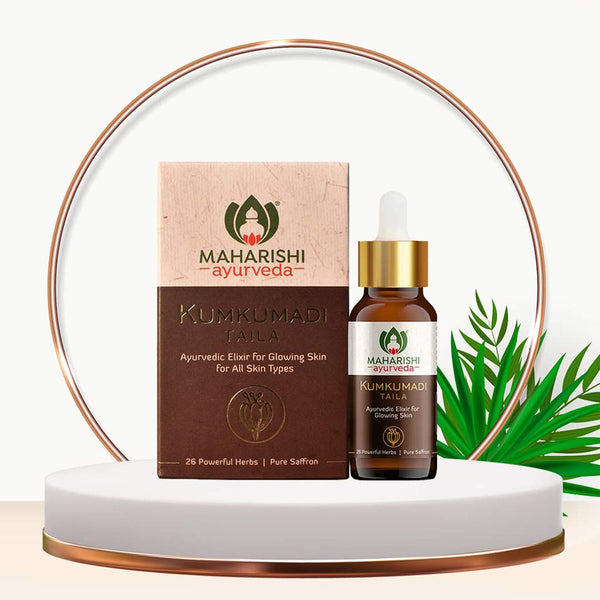




 Popular Read
Popular Read















































